News
-
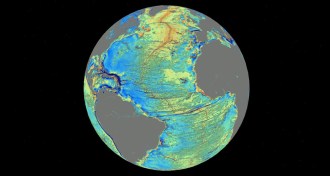 Oceans
OceansSatellites expose mysteries of the deep ocean
New detailed map of Earth’s seafloor reveals never-before-seen formations.
-
 Neuroscience
NeuroscienceHigh blood sugar could worsen effects of spinal injury
Studies in people and mice suggest reining in blood sugar can improve recovery from a spinal cord injury.
By Nathan Seppa -
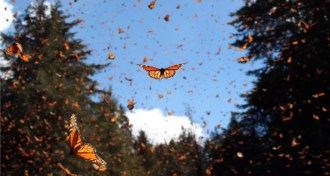 Animals
AnimalsMonarch butterflies’ ancestors migrated
The earliest monarch butterflies originated in North America and were migratory. Some of the insects later lost that ability as they moved into the tropics, a genetic analysis finds.
-
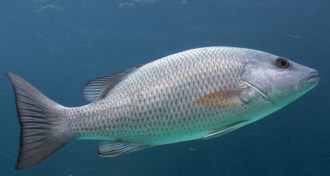 Animals
AnimalsBaby fish are noisier than expected
Gray snapper larvae may be able to communicate in open water using tiny knocks and growls.
By Susan Milius -
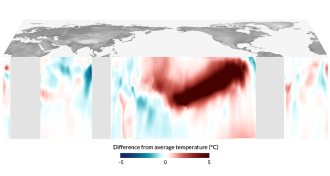 Climate
ClimateMissing winds probably foiled 2014’s chance for El Niño
Lack of antitrade winds probably hampered 2014 El Niño.
-
 Climate
Climate19th century chronicles offer clues to mystery volcano
Meteorological records narrow down the time and place of a massive volcanic eruption that helped trigger a decade of extreme cold.
By Beth Mole -
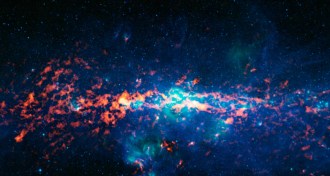 Chemistry
ChemistryInterstellar chemical resembles building blocks of life
A molecule detected in the space between stars resembles amino acids, suggesting those building blocks of life share a similar origin.
By Beth Mole -
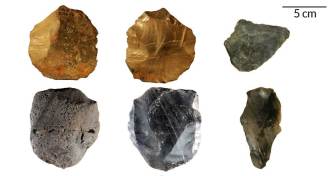 Archaeology
ArchaeologyAncient stone-tool making method arose multiple times
Hominids in both Africa and Eurasia independently invented a flake-tool technique hundreds of thousands of years ago, countering a long-held idea in archaeology.
By Meghan Rosen -
 Neuroscience
NeuroscienceMighty muscles may stave off depression
Strong muscles protect the brain from stress-induced toxin associated with depression, a study in mice suggests.
-
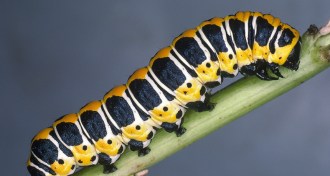 Life
LifeFledgling birds change rules for caterpillar color
An unusual experiment shows that larvae lose the advantage of warning colors during the seasonal flush of naïve predators.
By Susan Milius -
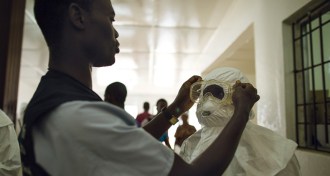 Health & Medicine
Health & MedicineMore than 1 million Ebola cases may hit West Africa by January
New projections of the outbreak suggest that without drastic improvements, weekly cases could increase from hundreds to thousands.
By Nathan Seppa and Janet Raloff -
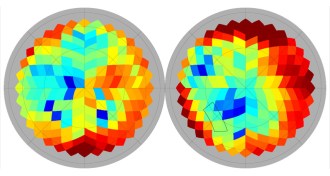 Cosmology
CosmologyGravitational wave discovery gives way to Milky Way dust
New polarization maps from the Planck satellite suggest that the BICEP2 announcement this year of primordial gravitational waves might be due entirely to dust in our galaxy.